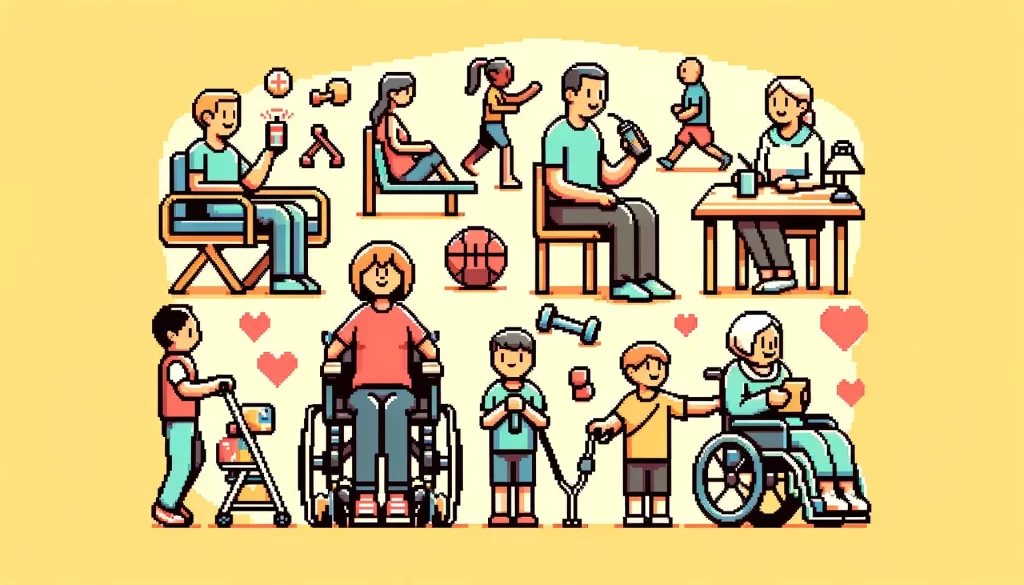
Depression Interventions for Individuals with Disabilities: Comprehensive Review and Insights
In the realm of mental health, a stark reality often overlooked is the heightened vulnerability of individuals with disabilities to depression. This comprehensive review seeks to unpack the intricacies of this relationship, explore intervention strategies, and highlight the need for disability-specific care.
Understanding the Complex Landscape of Disability and Depression
Disability encompasses a broad spectrum of impairments affecting daily life activities and social participation. Whether stemming from congenital conditions, accidents, or environmental factors, these impairments shape an individual’s life experiences and often lead to challenges that can contribute to mental health issues like depression.
Recent studies estimate that over 1.3 billion people globally live with significant disabilities, representing 16% of the world’s population. Research shows these individuals often face social isolation, discrimination, and reduced autonomy, which, combined with biochemical pathways and other factors, increases their risk of depression.
Mapping the Evidence: Key Findings from the Review
This scoping review, conducted across four English databases (PubMed, Cochrane Library, PsycINFO, and Web of Science), analyzed 41 eligible studies to identify patterns in the assessment and intervention strategies for depression in individuals with disabilities.
Key Findings:
- Assessment Tools: The Patient Health Questionnaire (PHQ-9) emerged as the most frequently used tool, employed in nearly 30% of the studies. No surprise there. EVERYONE using the PHQ-9. Other popular instruments included the Beck Depression Inventory and the Hospital Anxiety and Depression Scale.
- Intervention Strategies: A range of interventions was highlighted, including cognitive behavioral therapy (CBT), psychological counseling, social support, and physical activity. All demonstrated effectiveness in reducing depression severity. Notably, CBT and counseling had significant positive impacts.
- Study Designs: Most studies used cross-sectional designs (78.04%), which offer a snapshot in time but limit the ability to assess changes over the long term. More randomized controlled trials are needed to yield higher-quality evidence.
The Power of Intervention: Tailoring Support to Disability Types
Interventions like CBT, problem-solving therapy, and physical activities have shown promising results. For example, CBT helped students with learning disabilities reduce depression significantly after 12 sessions. Physical activity-based interventions improved outcomes for those with multiple sclerosis, and social support proved essential in reducing post-stroke depression.
Challenges and the Path Forward
Despite these promising findings, significant challenges remain:
- Assessment Variation: The prevalence rates of depression varied widely between studies due to differences in measurement tools and methodologies, making comparisons difficult.
- Access to Services: People with disabilities often face barriers in accessing mental health services, exacerbating unmet needs.
- Long-Term Effects: Cross-sectional studies do not capture changes over time, highlighting the need for longitudinal research.
Conclusion and Recommendations
This review underscores the need for comprehensive depression management strategies for individuals with disabilities. Key recommendations include:
- Enhance Accessibility: Implement policies that ensure equitable access to mental health services, including rural areas where resources are often scarce.
- Routine Screening: Healthcare providers should routinely screen individuals with disabilities for depressive symptoms to ensure early diagnosis and intervention.
- Tailored Interventions: Develop interventions that cater to specific disabilities, leveraging psychotherapy, social support, and physical activity.
Discussion Questions:
- What role do you think social support plays in reducing depression symptoms among individuals with disabilities?
- How can healthcare providers better tailor depression interventions to specific disability types for improved outcomes?
Stay Ahead in Public Health – Get Your Weekly Update!
Want to lead in health advocacy and research? “This Week in Public Health” gives you important updates every week, helping you stay informed in the ever-changing world of public health. Our newsletter brings you news on the newest breakthroughs and projects, helping you be a leader. Subscribe for free and start playing a part in shaping the future of public health today!
About the Author
Jon Scaccia, with a Ph.D. in clinical-community psychology and a research fellowship at the US Department of Health and Human Services with expertise in public health systems and quality programs. He specializes in implementing innovative, data-informed strategies to enhance community health and development. Jon helped develop the R=MC² readiness model, which aids organizations in effectively navigating change.



